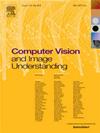基于深度元学习的水下图像质量评价:数据集和客观方法
IF 3.5
3区 计算机科学
Q2 COMPUTER SCIENCE, ARTIFICIAL INTELLIGENCE
引用次数: 0
摘要
复杂环境导致的水下图像质量下降影响了应用的有效性,因此准确的质量评估至关重要。然而,现有的水下图像质量评估方法缺乏足够的可靠数据。为了解决这个问题,我们构建了DART2024数据集,其中包含1000张原始图像和10000张由10种增强方法生成的失真图像,涵盖了不同的水下场景。我们提出了一种新的UIQA方法,该方法通过梯度图对原始图像进行加权,突出细节,构建具有感知、融合和预测模块的多尺度深度神经网络来描述质量特征,并设计了一个元学习框架来快速适应未知的扭曲。实验结果表明,该算法是可信的,能够满足训练要求。我们的方法在精度、稳定性和收敛速度方面优于SOTA方法,适用于DART2024和其他水下数据集。在自然场景数据集上也显示出更高的适用性。该方法的数据集和源代码可在https://github.com/dart-into/DART2024上获得。本文章由计算机程序翻译,如有差异,请以英文原文为准。
Underwater image quality evaluation via deep meta-learning: Dataset and objective method
The degradation of underwater image quality due to complex environments affects the effectiveness of the application, making accurate quality assessment crucial. However, existing Underwater Image Quality Assessment (UIQA) methods lack sufficient reliable data. To address this, we construct the DART2024 dataset, containing 1,000 raw images and 10,000 distorted images generated by 10 enhancement methods, covering diverse underwater scenarios. We propose a novel UIQA method that weights original images via gradient maps, highlights details, constructs a multi-scale deep neural network with perception, fusion, and prediction modules to describe quality characteristics, and designs a meta-learning framework for rapid adaptation to unknown distortions. The experimental results show that DART2024 is credible and meets the training requirements. Our method outperforms SOTA approaches in accuracy, stability, and convergence speed on DART2024 and other underwater datasets. It also shows higher applicability on natural scene datasets. The dataset and source code for the proposed method can be made available at https://github.com/dart-into/DART2024.
求助全文
通过发布文献求助,成功后即可免费获取论文全文。
去求助
来源期刊

Computer Vision and Image Understanding
工程技术-工程:电子与电气
CiteScore
7.80
自引率
4.40%
发文量
112
审稿时长
79 days
期刊介绍:
The central focus of this journal is the computer analysis of pictorial information. Computer Vision and Image Understanding publishes papers covering all aspects of image analysis from the low-level, iconic processes of early vision to the high-level, symbolic processes of recognition and interpretation. A wide range of topics in the image understanding area is covered, including papers offering insights that differ from predominant views.
Research Areas Include:
• Theory
• Early vision
• Data structures and representations
• Shape
• Range
• Motion
• Matching and recognition
• Architecture and languages
• Vision systems
 求助内容:
求助内容: 应助结果提醒方式:
应助结果提醒方式:


